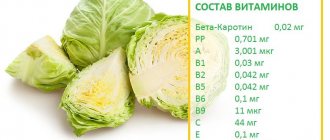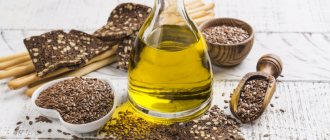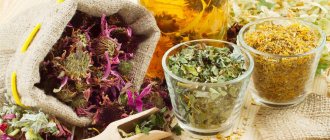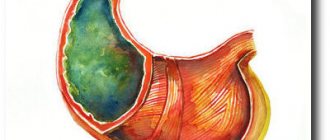The benefits and harms of tea for the stomach
Herbs are especially often used to eliminate problems in the gastrointestinal tract. After all, digestive problems are a very common complaint.
Stomach tea contains many beneficial herbs. If you drink it regularly, there is a chance that it will restore the activity of the stomach and help the condition of the mucous membrane. This drink can also be taken as a remedy that has the property of eliminating discomfort.
Of course, in the current conditions, few people can rely only on the magical effect of plants. After all, tablets, drops, sprays, etc. can give the expected result much faster. But you should not assume that collecting herbs is a simple drink, the same as regular tea. It can also do harm.
Herbal tea for the stomach
For example, if the tea is made from plantain or ginger, then it will be useful for those with low acidity. Symptoms may worsen greatly in an ulcer or gastritic patient with high acidity who takes such infusions.
In addition, the bouquet of the herbal drink contains many unique elements that can cause allergies if a person has a personal intolerance to the plant. Therefore, before drinking herbal teas, it is better to ask a doctor for an opinion.
For gastritis
Sufferers of gastritis can drink herbal tea made from one plant or several. The most popular herbs against gastritis are chamomile, anise, calendula and mint.
In tea collections, calamus and licorice roots, flax seed, mint and linden blossom are often used. The collection of herbs, like a single dried plant, must be filled with freshly boiled water. In this case, it is necessary to take into account the calculation - 2 tablespoons of herb per 1 liter of liquid. The contents need to stand for 30 minutes, and then rid the infusion of infused herbs.
This drink should be taken warm and in small portions - 100-150 ml. How to drink - before or after eating - depends on the herbal collection.
For ulcers
To eliminate the symptoms of gastric ulcer, you need to choose those herbs that will reduce acid production and also stimulate the improvement of the condition of the mucous walls of the organ.
Herb tea
That is, the plant must have an enveloping and healing effect. It can be the color of linden or flax seeds. But more often the infusion consists of several plants. Herbal tea, which is drunk for stomach ulcers, contains St. John's wort, immortelle, licorice and valerian roots, as well as chamomile flowers. In addition to the previously mentioned elements, sage, clover, wormwood or birch leaf are also used.
The ingredients of the drink should be mixed using equal proportions of herbs. Pour a tablespoon of this mixture into a glass of hot water, let it brew for 5-10 minutes and strain. It is recommended to drink the infusion half a glass after eating.
For diarrhea
If we are talking about diarrhea, then herbal tea will come in handy. It will help not only normalize microflora, but also get rid of toxins.
This process may involve rosehip root, chamomile, St. John's wort, oak bark, wormwood, as well as rowan berries, ginseng and sage.
Using rosehip root, you can prepare an infusion in proportions - a tablespoon of crushed plant per glass of water. Keep the mixture on low heat for about 15 minutes, and then wrap the container and let it stand for more than an hour.
You can also take a tablespoon each of St. John's wort, wormwood, oak bark and chamomile, pour boiling water into the container and leave the mixture for an hour. You should drink 100 ml every three hours.
When bloated
Bloating is not a disease as such, but only one of the symptoms of possible ailments. Therefore, it must be treated, of course, in a comprehensive manner. But a herbal infusion can help get rid of unpleasant sensations.
Herbal infusion
You can make it, for example, from lemon balm. You need to take 4 tablespoons of crushed leaves and pour 300 ml of water. The tea is considered ready after simmering for 20 minutes. Then you need to strain it and drink 1 spoon per day, taking into account a one-hour break after eating.
Also in this case, wormwood is successfully used. 1 tablespoon of dry herb is poured into one glass of boiling water. The resulting mixture is left to infuse for 12 hours. After straining, you need to take the drink 100 ml 3 times a day.
With increased acidity
If the acid concentration in the stomach is too high, you can drink juice squeezed from aloe leaves. To reduce acidity levels, it is enough to drink 2 teaspoons before meals.
Calendula flowers also help get rid of excess acid in the stomach. Pour 1 small spoon of flowers into a suitable container and pour in a glass of boiling water. Next, the mixture should be cooled, strained and taken 100 ml 3 times a day.
For heartburn
Heartburn often plagues those who suffer from high acidity in the stomach. Chamomile, rosehip, calamus and celery root, as well as lemon balm and centaury can help with such an unpleasant symptom.
Collection of herbs
For example, dry lemon balm or chamomile in the volume of a teaspoon should be poured with a glass of hot water. You need to infuse the herbs for 10-15 minutes and drink after eating.
If you want to use calamus root, then this plant does not need to be brewed. It will be enough to grind it and take it before meals, using a portion no larger than the tip of a knife.
But centaury needs to be poured with boiling water, dividing a tablespoon of dry herb into a glass of hot water. The mixture should be boiled for 15 minutes and drunk one third of a glass 30 minutes before eating.
For constipation
Senna, flaxseed or buckthorn and rhubarb combined can have a laxative effect.
If you brew only senna, then you need to take into account the calculation - a dessert spoon of dried leaves per glass of boiling water. This mixture should sit for half an hour. Before drinking, you need to strain it and drink 100 ml at night. The same goes for flax. But you need to pour boiling water over a teaspoon of the herb and drink 250 ml.
You can make an excellent collection from senna, buckthorn and rhubarb. 2 tablespoons of plants prepared in equal proportions should be poured with half a liter of water and cooked for 20 minutes. Drink 250 ml every 2 hours.
For diarrhea
Blueberries, which can be prepared as a kind of jelly, are good for normalizing stool. You need to take 1 tablespoon of blueberries, 400 ml of water and 1 teaspoon of starch. The method of preparation is the same as for regular jelly. You need to take at least 2 glasses of this medicinal drink per day.
Herbal tea with blueberries
Oak bark will also do a good job of eliminating diarrhea. A teaspoon of crushed wood should be poured with half a liter of warm water and left to infuse for at least 8 hours. The drink should be drunk 2 times throughout the day.
Monastic stomach tea
According to legend, monastery tea was first used in the Solovetsky Monastery. Over time, the classic recipe was expanded, and different recipes for this tea appeared. The traditional version of monastery tea contains medicinal herbs that are aimed at supporting and stimulating the digestive system.
Manufacturer
In the CIS, monastery tea is produced by many companies. The main suppliers of raw materials for these companies are Resurstorg, Berezovy Mir and others.
Compound
The components of monastery tea may vary in different collections, but it mainly contains 9 main herbs. These include:
- St. John's wort – stimulates the secretion of gastric juice and the functioning of the duodenum;
- peppermint – relieves nausea and discomfort;
- flax seeds – protect the mucous membrane of the digestive organs;
- wormwood – increases intestinal motility;
- calendula – has anti-inflammatory and antibacterial properties;
- cudweed - relieves flatulence, stimulates the production of mucus necessary to protect the stomach walls;
- horsetail – has wound-healing properties;
- rosehip – increases the level of immunity, has a beneficial effect on intestinal function;
- yarrow – accelerates metabolism, successfully fights constipation.
Thus, stomach tea can have a complex effect on the gastrointestinal tract, improving digestion and preventing many diseases.
Useful properties and contraindications
The monastic collection has a beneficial effect not only on the gastrointestinal tract, but also on the liver and gall bladder. Among its properties are the following:
- normalization of metabolism;
- removal of waste and toxins;
- increasing the level of immunity;
- improved digestion;
- fight against intoxication;
- stimulation of bile synthesis;
- protecting the liver from toxic substances;
- improvement of intestinal motility;
- normalization of enzyme and mucus synthesis;
- fight against pathogenic bacteria;
- removal of inflammatory processes;
- healing of ulcers on mucous membranes;
- normalization of gastric acidity.
Thanks to the above properties, monastery tea is successfully used as an independent medicine or in combination with other drugs that restore normal functioning of the gastrointestinal tract.
Herbal tea does not contain chemical or synthetic components, therefore it is relatively safe, but still has some contraindications.
Before taking, you should make sure that you do not have an individual intolerance to any medicinal herb. In addition, contraindications for taking stomach tea are:
- acute stage of gastritis;
- various complications of peptic ulcer;
- increased content of hydrochloric acid in gastric juice;
- period of pregnancy and lactation;
- heart or kidney disease;
- children's age up to 12 years.
In any case, before using the collection, you should consult a gastroenterologist.
Release form. Where can I buy
Due to the wide popularity of monastery tea, there is a possibility of running into a fake. Manufacturers are trying to protect their customers and sell tea in bags through their official online stores, which contain various documents confirming the quality of the product. The price of 1 package of monastery stomach tea is about 990-1000 rubles.
This video will help you learn how to distinguish Monastic tea from a fake, where to buy real tea, its composition and beneficial properties.
How to use
Preparing monastery tea is not much different from brewing any other herbal tea. The instructions involve the following steps:
- Take 1 tbsp. l. collection and brew 200 ml of boiling water.
- Cover the container with tea with a lid and leave for half an hour.
- Strain the cooled broth and take.
For prevention purposes, you can drink stomach tea instead of coffee or regular tea a maximum of 5 times a day. When treating existing diseases, tea should be drunk 30-40 minutes before meals. There is no need to sweeten the broth as it has a pleasant taste.
The duration of one course can vary from 3 to 6 weeks depending on the condition of your body.
Indications and contraindications for medicinal tea
Medicinal teas can relieve some symptoms and help medications work.
First of all, this infusion should be used for gastrointestinal problems. Decoctions and infusions will help cope with:
- gastritis with low and high acidity;
- stomach ulcer;
- diarrhea and constipation;
- colitis, enteritis, proctitis;
- food poisoning;
- parasites in the intestines and dysbacteriosis.
It is better not to take herbs when the disease has worsened or is complicated in some way. If there is an early period after surgery, then there is no need to drink medicinal teas either.
Allergy sufferers need to be especially careful. After all, herbs, if personal intolerance, can cause severe allergies.
Side effects and contraindications:
Many people think that since they cleanse the intestines with folk remedies, then they have absolutely nothing to expect from any side reactions or complications. But, as was shown in the previous section, some herbs have more than just beneficial effects on the body.
Separately, we will highlight one more, previously unidentified side effect that may occur in response to tea to cleanse the intestines. Or rather, even a group of such phenomena, united by one reason. All these are the consequences of a strong laxative effect, characteristic of many plants. So, if you overindulge in herbs, you can expect:
1. Microflora disorders : it is washed out with intestinal contents.
2. Intestinal infections, the emergence of a tendency to food poisoning . The same flora is essentially an organ of local immunity and protects us from “internal enemies” - microorganisms that enter the digestive tract with food. When the protective biofilm is destroyed, consequences cannot be avoided.
3. Deterioration in general health, quality of skin, hair and nails, exacerbation of existing chronic diseases. With constant, prolonged cleansing of the intestines, nutrients, vitamins, and minerals pass through it in transit and are almost not absorbed; the body is in a state of hunger strike, and this simply cannot but affect beauty and health.
4. Disturbances of water and electrolyte metabolism. Every year in Russia there are several cases of people being hospitalized in intensive care and even dying (!) due to the illiterate use of folk recipes and the resulting severe metabolic disorders.
5. General immunity disorders with all the ensuing consequences, from frequent colds in winter to the risk of developing serious autoimmune, inflammatory and other disorders.
Therapeutic effect on the gastrointestinal tract
In order to get rid of toxins, a person needs to drink a lot of liquid. It’s even better if the choice is in favor of herbal infusions.
A decoction made from herbs helps to improve the health of the entire gastrointestinal tract system. It can increase or decrease stomach acid levels, help heal wounds and inflammation, and soothe heartburn.
Herbal decoction
Some herbs can help with diarrhea and constipation, cleanse the body in case of poisoning, and also normalize the microflora and relieve the discomfort associated with flatulence.
Herbs for heartburn and heaviness
Food that sits in the stomach for a long time can cause unpleasant heaviness. If the acidity inside the stomach is increased, heartburn may occur.
There are herbs that can help relieve these symptoms if you choose them correctly. The following plants can be the main helpers in such a situation:
- Chamomile flowers. By brewing them, you can get rid of pain and spasms. By clearing the bile ducts, chamomile stimulates the digestive process, and this can eliminate heaviness;
- Calamus root. Can relieve heartburn, and also stimulates processes that increase appetite;
- Rose hip root. It triggers the stimulation of enzymes and gastric juice;
- Celandine. This plant can reduce the concentration of juice in the stomach and reduce the symptoms of heartburn;
- Celery root. Prevents increased levels of stomach acid, which causes heartburn.
Reviews of stomach tea
For informational purposes, we will give a few examples - reviews of stomach tea left by visitors to our site.
Review from Pavel: My stomach began to hurt constantly. I went to the doctor, where I was diagnosed with gastritis. The doctor prescribed a special diet (no spicy, rich, or salty foods) and advised me to drink monastery tea.
I found this tea on the Internet on a site that describes different types of gastritis. There was a link to the official website of the manufacturer, where I ordered tea. The tea itself tastes pleasant and has a cool smell (probably due to the rose hips and mint). I stuck to the diet and drank tea for about a month, after which the gastritis went away.
Review from Ekaterina: Friends recommended stomach tea. I have been drinking this tea for a year now, with breaks of a couple of weeks. It is noticeable that digestion improves, the pain that periodically occurs to me due to gastritis disappears.
I brew tea at the rate of 1 tablespoon per mug of boiling water, steep for 10 minutes and drink from one to four times a day. Sometimes I drink when I feel discomfort in my stomach and intestines, and then I immediately feel better.
Stomach tea is an excellent natural remedy for solving various problems with the digestive system. There are different options for collecting medicinal herbs; they can be purchased ready-made or made independently. Regardless of the production method, regular use of stomach tea will help cope with both one-time gastrointestinal disorders and chronic diseases.
Tea for diarrhea and constipation
For diarrhea, it is better to use tea made from St. John's wort, oak bark, yarrow, willow bark or bearberry leaves. Each of these infusions has its own effect on the symptoms of diarrhea, but in general they can prevent dehydration, remove poison and toxins, normalize stools, reduce intestinal cramps and stop vomiting.
Herbal tea for blood vessels
Drinks made from senna, buckthorn bark, valerian root and centaury will help relieve constipation. A drink made from these plants helps cleanse the intestines, reduces gas formation, softens stool, normalizes intestinal motility and reduces pain during bowel movements.
Composition of gastric collection and its types
There are many variations of herbal remedies that have properties that help patients with gastrointestinal problems. They may consist of flowers, herbs, roots or fruits of various plants.
There are 3 main options for gastric collections. They are called, respectively, by numbers officially assigned.
Gastric collection No. 1 is represented by the following components:
- herbs millennial, knotweed, horsetail, St. John's wort and plantain;
- flowers of immortelle sandy, chamomile and calendula;
- leaves of nettle, peppermint, lemon balm, wild strawberry and corn silk;
- fruits of dill and rose hips;
- fireweed.
Most often, this type of medicinal tea is drunk for gastritis with high acidity.
Herbal collection
Gastric collection No. 2 includes:
- licorice roots, calamus and their rhizomes;
- dried motherwort, lemon balm, hillwort and peony;
- flax seeds.
This herbal collection helps for those who have low acidity in the stomach.
Gastric collection No. 3 is composed of:
- stinging nettle leaves;
- peppermint;
- buckthorn bark;
- valerian and calamus roots and rhizomes.
Treatment of intestinal diseases with herbs
There are a lot of medicinal herbs for treating intestinal diseases. There are herbs that improve digestion, eliminate intestinal upset and pain, and cleanse the colon. Medicinal herbs for the intestines can be taken in the form of infusion, decoction or tea. The optimal dose is usually about 100-150 ml for prophylaxis, lower dosage is possible for prophylaxis.
Collecting herbs has a beneficial effect on the function of the intestines, kidneys, liver, and stomach. Usually fruits, roots, and above-ground parts of the plant are used. Herbalists carefully select herbs to create mixtures that can bring maximum benefits. You can use ready-made pharmaceutical preparations, as well as fresh stems, flowers, leaves and fruits of the plant. For intestinal health, you need to increase the amount of folic acid, vitamins C, E, A, dietary fiber, calcium and selenium. It is necessary to increase physical activity; the intestines do not tolerate an inactive lifestyle.
You may be interested in: Is tea with bergamot leaves good for nursing mothers?
Features of choice
In order to improve the condition of a person who has gastrointestinal diseases, you can use tea from one plant, or from several.
Most often they drink herbal infusions, since each of the components can bring its own benefits. Gastrointestinal preparations can act in different ways. They can relieve pain, have a laxative effect, have an astringent or diuretic effect, and also normalize intestinal function.
Various herbal teas
Which drink is suitable in a particular case can only be determined by first making an accurate diagnosis of the disease. It is best if a doctor participates in the selection of an auxiliary treatment method.
Those who do not want to buy herbs separately and put together the mixture themselves can buy ready-made tea at the pharmacy. There will also be instructions for use, the points of which must be followed if you want the drink to help alleviate the symptoms of the disease. Only the right doses and preparation can guarantee the expected success.










